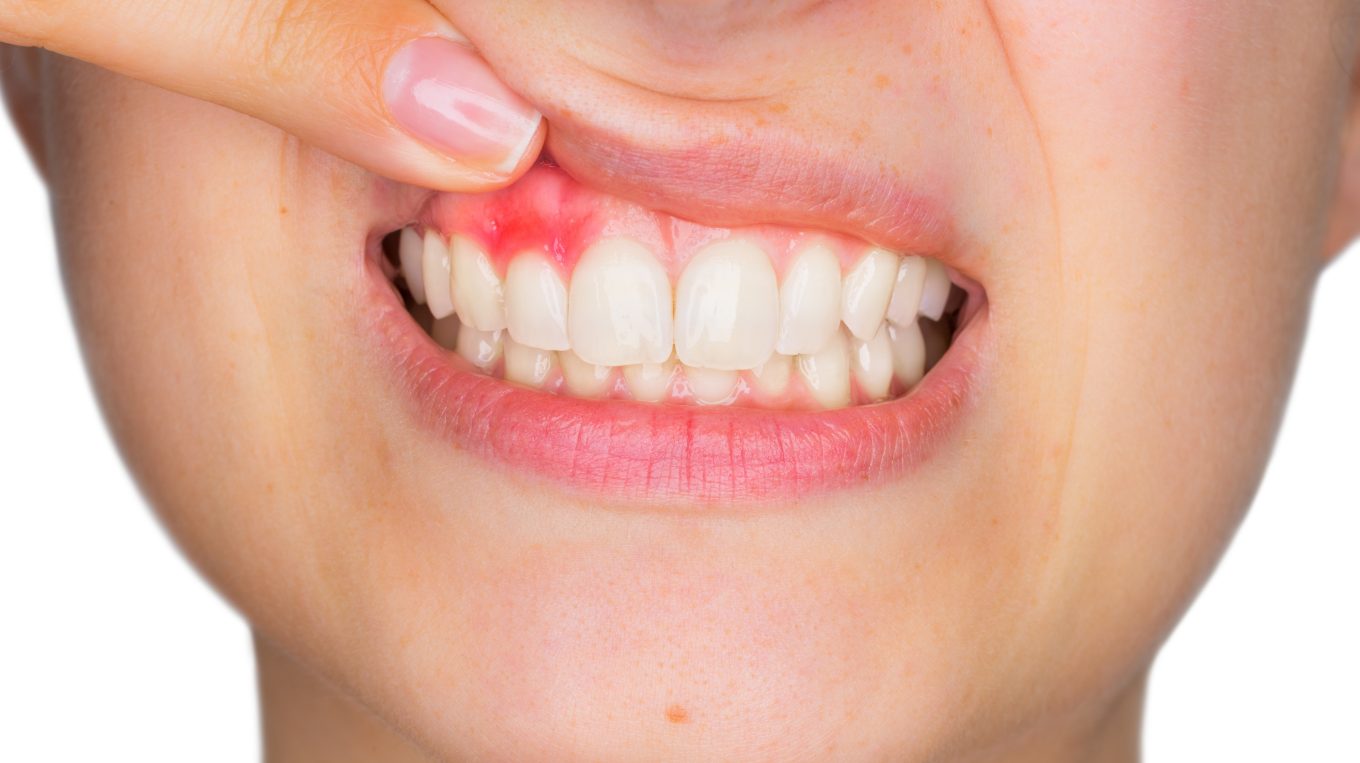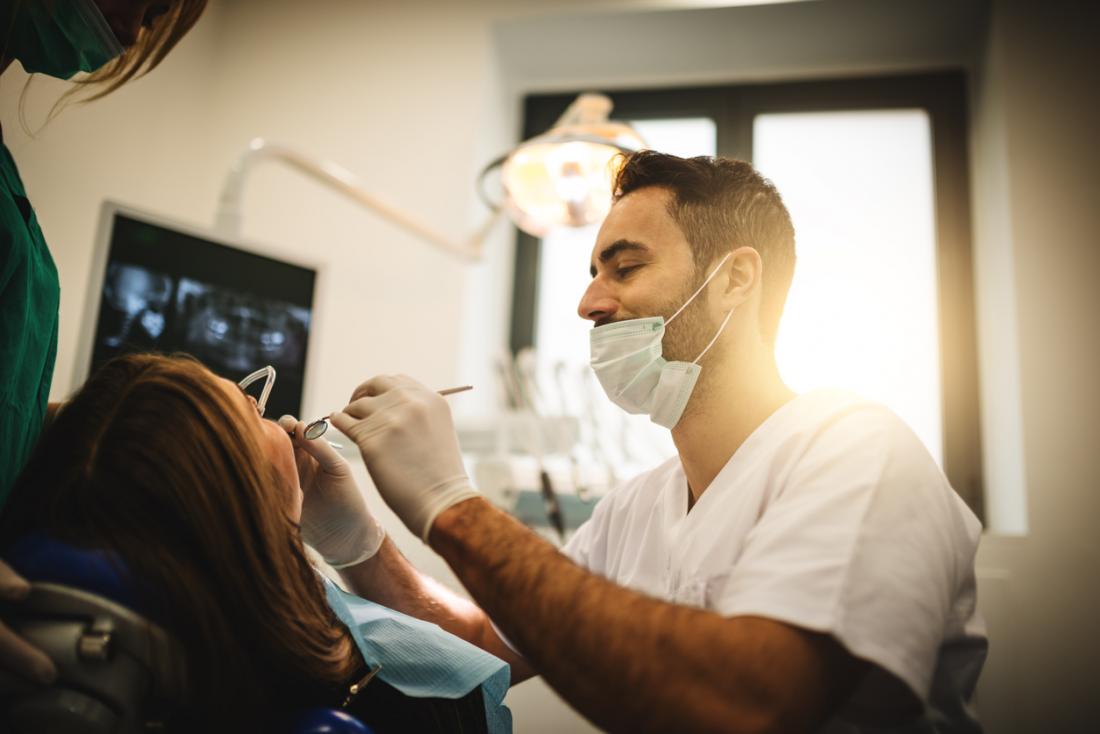Around the base of our gum, there is a part known as gingiva. The gingiva due to multiple reasons becomes painful. Inflammation and redness can be seen at this part. This may lead to the disease gingivitis. We can explain gingivitis as,
“An oral disease that can be caused by smoking or using tobacco, and it can cause swelling in the gingiva. Gums become weak. They may start bleeding. Redness and soreness occur. Plaque can be accumulated within the cavities.”
Initially, it is mild and curable. It is common to have traces of gingivitis until it is neglected to cause severe loss of the teeth. it can lead to periodontal disease. This article will cover some of the symptoms, causes, and treatments regarding gingivitis.
What are the Symptoms of Gingivitis?

People usually do not pay attention to mild pain or soreness. Most of them try to solve the issue at home. But doing so the dental problem could reach its peak and it can be dangerous. It is of utmost importance to pay proper heed to your dental health. There are several symptoms for which you should hurry to visit your doctor in case you notice them.
- If you notice any soreness, pain, and inflammation in your gums.
- If your gums are bleeding especially while brushing or flossing your teeth.
- If you feel sensitive while taking tea or enjoying an ice cream.
- If you feel pain while you are chewing a pack of gum or some candy.
- When you feel a headache straight up to the aching gum. Severe teeth problems may cause migraines as well.
- When you experience a broken or cracked tooth.
- When your teeth are covered with plaque and gums are filled with pus.
- On noticing tenderness and redness on the gum.
Gum diseases are very painful and they can cause you to suffer much if left untreated. It can cause severe headaches and can lead to ear pain. The pain can cause a very irritating situation. You should see your doctor as soon as you experience these symptoms.
Five Things To Do In Case of Emergency Dentistry Need
What Are the Causes of Gingivitis?
The major cause of developing gingivitis is poor oral hygiene. You can develop tooth problems when you do not pay attention to your oral health. Improper brushing or flossing can lead to the flourishing of bacteria and plaque on your teeth.
Plaque-induced Gingivitis: How Does it Happen?
This plaque can affect your teeth in multiple ways. A few ones are explained.
- Plaque covers the teeth completely and stimulates the flourishing of bacteria. These deadly bacteria can penetrate your gums to roots and result in rotten roots and painful swelling gums.
- The plaque hardens to become tartar which multiplies the risk of contamination of deadly germs in the gums. This can spread the infection and lead to soreness and redness in the teeth.
- If the bacteria keep on prevailing and the gums are left unchecked, the gums will start tearing off from the teeth. you may experience a broken or cracked tooth. The tissues of the gums can also get injured and start bleeding. This is the most peak level gingivitis.
- This phenomenon can irritate your gums. The gums tissue becomes weak enough to grip the tooth. At this stage, you are more likely to lose a tooth.
Other Factors Inducing Gingivitis
The plague reaches up to our teeth because of our negligence towards our oral health. We should take care of our teeth and check the factors that can induce gingivitis or any other oral disease.
- Excessive smoking and the use of tobacco, coffin, and other drugs can cause serious damage to your teeth.
- Deficiency of vitamin C and D. proper nutritious food is necessary for strong teeth.
- Dental problems may be occurring due to hormonal changes. At puberty or during pregnancy, there is a rush of hormonal changes that can cause a poor grip of gums on teeth.
- Gums lose their grip with age. Older age people are more likely to develop oral problems.
- Some medications like those used to cure depression, insomnia, or blood pressure can affect the teeth.
- People having poor immunity can’t resist the bacterial attack and thus develop such serious diseases.
Emergency Dentistry Need

You should hurry to visit your doctor in case of any of the above symptoms. Before things get worse book an appointment with your doctor. These days the technology has made it easier to find dentistry help in your areas. People of the United States lining in Colorado Springs can find recommended Dentists Colorado Springs easily to get the most comforting treatment by expert doctors.
How To Deal With Different Dental Emergencies
Precautions
You can save your teeth from decaying by maintaining a thorough hygienic measure.
- Brush your teeth twice a day.
- Floss your teeth thrice a week.
- A Complete regular checkup after every six months.
- Brushing your teeth before bed.
- Do not eat many sweets. Foods That Damage Your Teeth; Most Common
- You should brush your teeth after dinner.
- Do not let the plaque embed over the teeth.
- Stop using cigarettes and drugs.
These precautionary measures can minimize the risk of having any gum disease, especially gingivitis.
Treatment for Gingivitis
The treatment for gingivitis depends on the severity of the disease. It is usually treated in two ways
Complete Cleaning of the Teeth
Complete dental cleaning involves the process of cleaning the plaque using the equipment. The dentist cleans the plaque that has covered our teeth. It also involves root cleaning. The gums are cleaned deeply up till their roots. The dentist wipes the plaque and pus away. He detects the rotten root and eradicates it if he finds any. Teeth are then cleaned with any preservative. The dentist makes sure to remove all plaque, pus, and tartar. For this purpose, some equipment and lasers are used.
Benefits Of Cosmetic Dental Procedures That Will Help Your Overall Health
Proper Medications
The gingivitis can be controlled at the initial stage with some medications. The medicine to cure oral problems includes oral antibiotics to stop inflammation, antiseptic mouthwash to disinfect the mouth, antiseptic chips, and many others.
If the medicines don’t work the patient must refer to surgery. During surgery, the gums are completely lifted and cleaned thoroughly. The stubborn plaque and tartar are removed from the deep cavities. The gums are then replaced. Pseudo tissue can be crafted if the gums are too damaged to heal.

Emily Smith is a talented content writer, wielding words to create captivating stories and informative articles across a wide range of topics. With a passion for effective communication and a love for research, Emily consistently produces engaging and valuable content. She’s dedicated to conveying ideas clearly and compellingly, making her a sought-after voice in the digital sphere. When not writing, Emily enjoys immersing herself in art, nature, and culinary adventures for fresh bursts of creativity.






Loading…